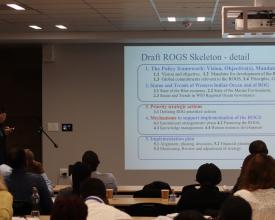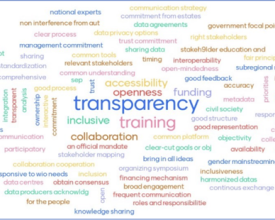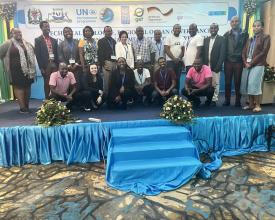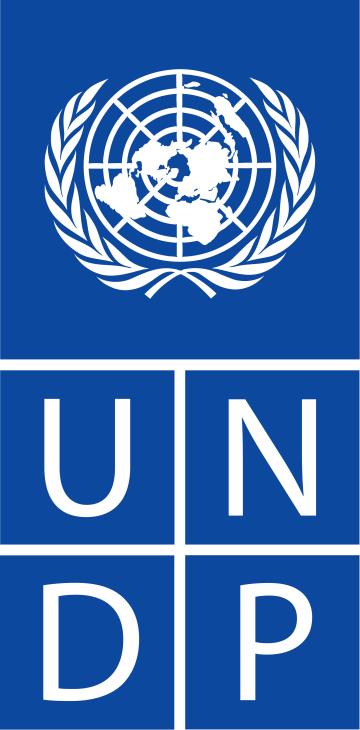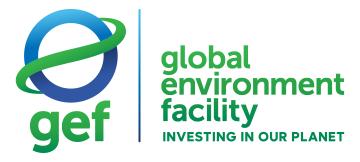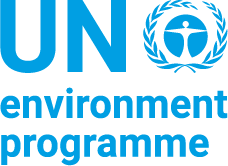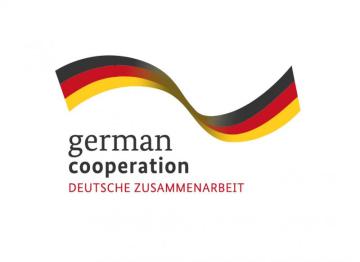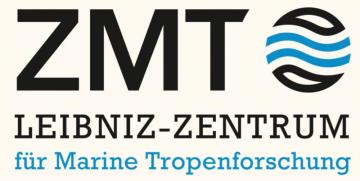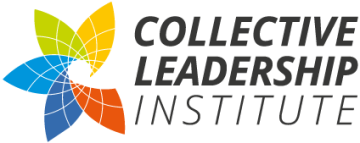
Co-creating an Information Management Strategy for the Western Indian Ocean through a Multi-stakeholder Working Group
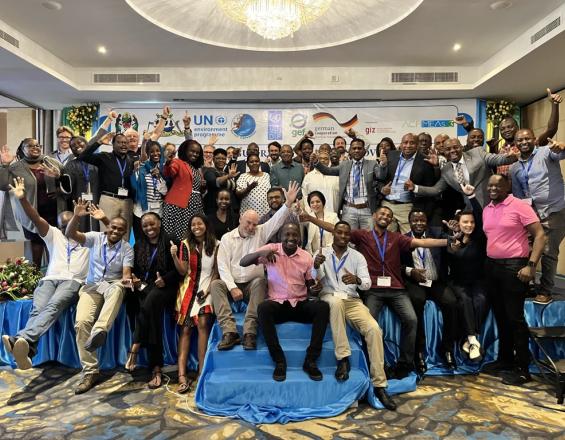
The Information Management Strategy (IMS) for the Western Indian Ocean (WIO) aims to promote marine environmental knowledge sharing and effective governance. Initiated at the 10th Conference of Parties to the Nairobi Convention in 2021, it's a participatory, multi-stakeholder approach, involving governments, NGOs, private sector, academia, and others.
The IMS seeks to raise public awareness about the ocean's importance and facilitate data sharing for informed decision-making. It establishes a Multi-stakeholder Working Group (MSWG) with regional representation to guide its development. Stakeholder engagements, dialogues, and technical guidance are key components.
This strategy recognizes the region's unique challenges and the need for multi-sectoral collaboration in managing the marine environment. It's a significant step towards creating a more ocean-literate public and informed ocean governance in the Western Indian Ocean.
Context
Challenges addressed
-
Feeding science into policy-making is required to ensure informed and sustainable approaches are taken to manage marine and coastal resources.
-
Data and information often exist but must be sufficiently shared across sectors, regions and institutions.
-
Identifying and engaging appropriate and a critical mass of stakeholders sufficient to constitute the Multi-stakeholder Working Group.
Location
Process
Summary of the process
See the below image for an overview of the process architecture. Please note that the IMS MSWG is convened by the Nairobi Convention (NC) at the heart of the process with other organisations (incl. GIZ, CLI, ZMT) assisting the NC in developing the strategy.
Building Blocks
Political will and a mandate for developing an Information Management Strategy
A mandate from the Parties to the Nairobi Convention, adopted at the 10th Conference of Parties in 2021, forms the basis for co-designing an Information Management Strategy for the Western Indian Ocean. It was emphasised that the development should happen in a co-development process, recognising the fundamental role of the Nairobi Convention national focal points, involving national data centres and amplifying the role of national experts to a sustainable regional Information Management Strategy development and implementation in the long term.
Enabling factors
-
Having an official mandate is an essential success factor for such a participatory process. It helps create ownership for the process and the implementation of the resulting strategy.
-
Country participation in the creation of the strategy.
Lesson learned
-
Long process leading to the adoption of the decision asking for the development of the strategy.
-
Coordination of such a regional and political process requires continuous capacities on all sides and strong will to actively participate.
-
Continuity and a long-term process for developing and implementing strategy needs to exist before the start of the process.
Developing the regional Information Management Strategy in a co-creation process
To develop a region-wide Information Management Strategy considering voices from across the region and different sectors, a participatory and representative Multi-Stakeholder Working Group (MSWG) of 24 persons composed of Nairobi Convention Contracting Parties and relevant stakeholders (incl. NGOs, universities, research institutions) in the region was established. The members of the MSWG have taken responsibility for designing and driving the IMS process within their organisations and with the broader stakeholder system, incl. organising and convening thematic stakeholder consultations.
The collective approach to developing the strategy values multi-stakeholder dialogue as key for co-developing a strategy informed by diverse voices and owned by a broad and representative set of stakeholders. Strategic partnerships to support the co-development of the Western Indian Ocean IMS are with the Collective Leadership Institute (CLI) and the Leibniz Centre for Tropical Marine Research (ZMT). With workshops and webinars, CLI helped build multi-stakeholder dialogue and collaboration capacity among members of the MSWG to enhance the quality, viability, and ownership of the IMS. ZMT supported the IMS development process with technical expertise and experience in drafting the IMS document.
Enabling factors
-
A series of physical meetings were essential in developing the basic structure and content of the strategy.
-
Physical meetings also helped to keep the momentum alive for further online collaboration in the strategy development.
Lesson learned
- Need to assign clear roles within the process including someone who drives the process forwards according to set timelines.
Impacts
-
A draft Information Management Strategy has been developed and circulated. A final version will be presented to the Focal Points of the Nairobi Convention for possible consideration at the upcoming Conference of Parties to the Nairobi Convention in early 2024.
-
The IMS Multi-stakeholder Working Group engaged with regional stakeholders through Technical Dialogues on key topics identified as priorities for the Strategy, e.g. Ocean Accounting and Marine Spatial Planning.
-
The IMS Multi-stakeholder Working Group held exchanges with stakeholders involved in developing the Regional Ocean Governance Strategy for the WIO, ensuring regular communication and understanding of synergies and complementarities.
-
The Collective Leadership Institute conducted training and information sessions for members of the IMS MSWG, introducing CLI’s two core methodologies (The Collective Leadership Compass and the Dialogic Change Model). These helped participants better understand their respective stakeholder systems and enhance their individual and collective leadership capacities.
-
A regional consensus and ownership of the IMS development process assures mainstreaming of the IMS into national planning processes.
Beneficiaries
- Contracting parties of the Nairobi Convention
- People of the WIO dependent on marine and coastal ecosystems
- Co-development participants
- Private sector/NGOs for blue growth
- Coastal/marine organizations


